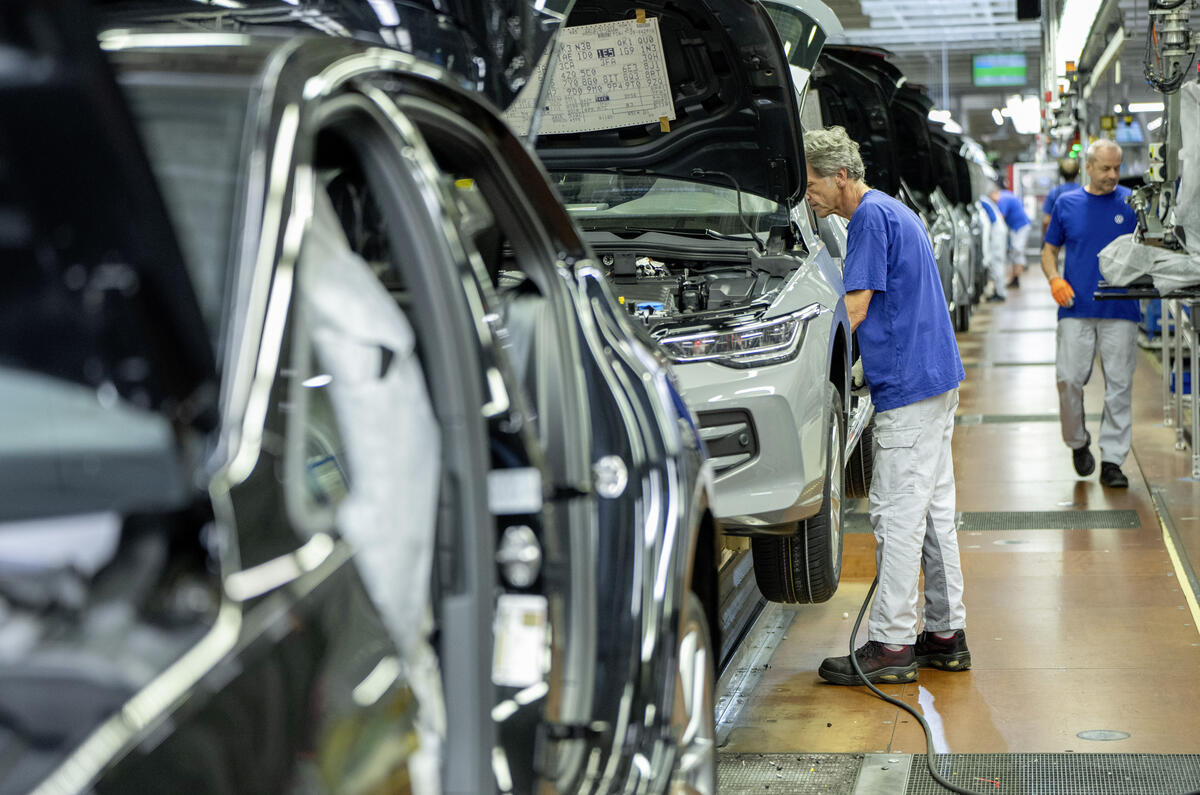Volkswagen will cut 35,000 jobs over the next five years as part of a comprehensive restructuring plan to save up to €4 billion (£3.4 billion).
The decision was announced this evening after the car maker finalised an agreement with its works council. The manufacturer said the plan is designed to streamline operations, enhance efficiency, and secure a competitive financial footing as it pivots to electric vehicles.
The majority of the reduction will be implemented through voluntary measures, including early retirement and severance packages, in an effort to minimise social disruption, says the German car maker. VW has approximately 120,000 employees in Germany, about half of whom work at the main plant in Wolfsburg.
The restructuring will also prioritise optimising production efficiency and reallocating resources towards Volkswagen’s electric vehicle strategy in a move aimed at reducing the overall capacity in its German manufacturing network by 700,000 vehicles annually.
Volkswagen confirms the historic former Karmann factory in Osnabrück, which dates back to 1901 and was acquired by Volkswagen in 2009, and the Transparent Factory in Dresden, originally opened in 2002 to produce the now-discontinued Phaeton, will remain in operation, but they are planned to be repurposed in a bid to slash costs.
According to reports by Wards Auto, Osnabrück will remain open until 2026 to fulfil a contract to produce the existing T-Roc Cabriolet. It is claimed there are plans for a defence company to step in and preserve as many jobs at the plant as possible.
The Dresden site, where ID 3 models are currently manufactured, has been earmarked to cease vehicle production. In the future, it is expected to house a yet-to-be-confirmed Volkswagen-run technical operation.
The announcement of the restructuring follows weeks of intense negotiations between Volkswagen management and worker representatives. The talks were prompted by Volkswagen Group CEO Oliver Blume’s earlier calls for dramatic measures to cut labour costs, citing Germany's high wages as a barrier to competing with key rivals. Blume had controversially proposed a 20 per cent wage reduction and warned that factory closures were essential for Volkswagen's long-term competitiveness.
The potential closure of the Osnabrück and Dresden facilities has drawn sharp criticism in Germany, sparking debates in the German parliament. While Volkswagen management had also pushed for the closure of a third plant, both its Zwickau and Emden facilities have been spared in the cost-cutting measures.





Join the debate
Add your comment
That'll be literally everyone.
VW's problems are surely a mix of dieselgate, spanners in the range like the T-Roc and the Golf Mk8, and dropping clangers with poor infotainment design across both ICE and EV models.
The most impressive part of this story is the unions agreeing to no pay rises till 2030, when coupled with this streamlining they might have a path out of their mess.
Sad for the workers of course, but isn't this all self-inflicted?
EU siding with VW and place blame at competition from China. As a result, the EU have slapped an extra 20% import duty on Chinese manufactured cars as we've read in other articles. How convenient.
They say this job cutting measure will save VW 4 billion Euro, yet according to VW's own figures, dieselgate cost the company 33.1 billion Euro. That's the real reason why they're in trouble.
Of course there's absolutely no mention of dieselgate playing any role in their current financial troubles. Oh no, it's Chinese governmment subsidies... it's the move over to EV... it's his workers being paid 20% too much. Aye right, Herr Blume.
VW have nobody else to blame but their own corrupt management.